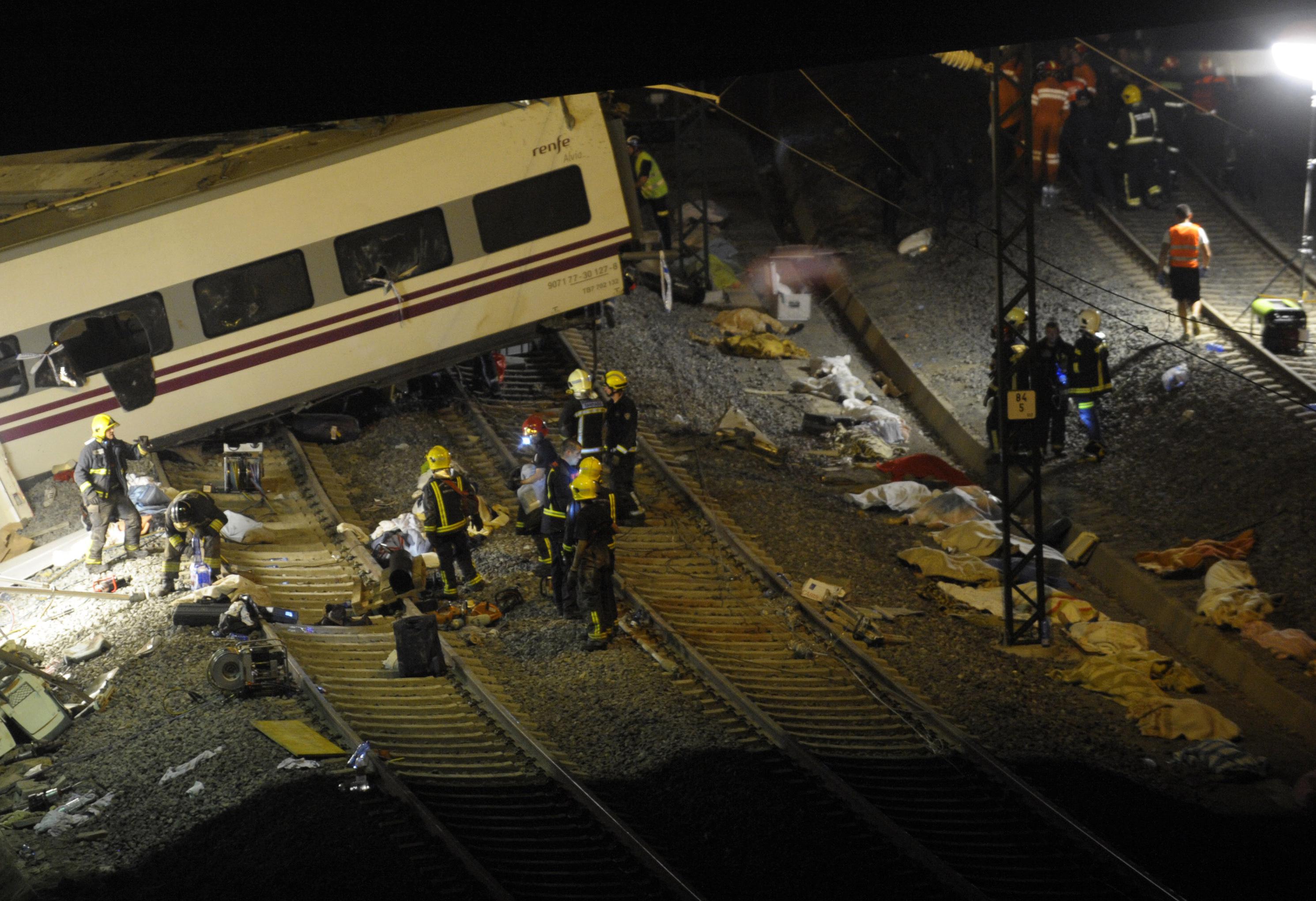More bad news from the world of transportation: A high-speed train in northwest Spain derailed Wednesday night, leaving at least 78 people dead and more than 140 others injured, according to the latest word from officials on the ground. The BBC reports that the investigation into the crash is ongoing, although early signs suggest that the train may have been traveling at more than twice the 80 km/h speed limit when it went around a curve and all eight of the train’s carriages left the tracks. Spanish officials say one of the train’s drivers has been put under formal investigation.
Eyewitness accounts from the scene made the severity of the crash immediately clear last night. Four of the carriages were overturned—at least one of which was torn open with smoke billowing out by the time first-responders arrived on the scene. A photographer at the scene told the Associated Press that he saw dozens of what appeared to be dead bodies being pulled from the wreckage by emergency workers. Early photos and video of the crash site appeared to show an untold number of bodies covered by blankets near the wreckage. “There are bodies lying on the railway track,” local official Alberto Nunez Feijoo told radio Cadena Ser last night (translation via the AFP). “It’s a Dante-esque scene.” By morning CCTV video had surfaced showing the moment the train derailed, footage that gives a glimpse into the force at which the train left the tracks:
The train, which was carrying more than 200 passengers, was headed from Madrid to Ferroil when it came off the tracks near Santiago de Compostela. Local officials say that it’s too early to say for certain what caused the derailment, although so far there has been little to suggest a link to anything resembling terrorism or another type of deliberate attack. Assuming that’s the case, it becomes the third deadly train accident this month—following the derailment in France that killed at least a half dozen and the one in Quebec that left roughly 50 dead—and at least the fifth in Europe over the past two years. (The AP has a more complete rundown of Europe’s recent accidents here.)
This post, originally published on Wednesday, July 24, has been updated with additional information as it became available.
